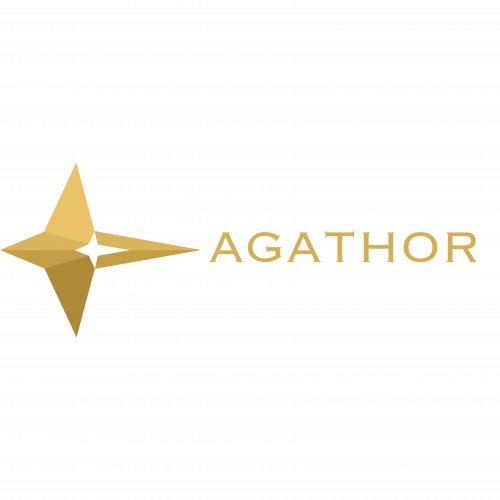Best Energy Regulatory Law Lawyers in Ankara
Share your needs with us, get contacted by law firms.
Free. Takes 2 min.
List of the best lawyers in Ankara, Turkey
About Energy Regulatory Law in Ankara, Turkey
Energy Regulatory Law in Ankara is primarily concerned with the regulation, supervision, and development of the energy sector in Turkey. As the capital city, Ankara is home to key governmental and regulatory bodies, including the Energy Market Regulatory Authority (EPDK). This area of law encompasses rules regarding electricity, natural gas, renewable energy sources, petroleum, and liquefied petroleum gas markets. The main purpose is to ensure efficient, reliable, and competitive energy markets while protecting public interests, encouraging private investments, and promoting sustainable energy use.
Why You May Need a Lawyer
Individuals and businesses may require legal assistance in Energy Regulatory Law for various reasons. Common situations include:
- Obtaining licenses or permits for energy production, distribution, or sales
- Compliance with complex regulatory requirements and standards
- Negotiating and drafting energy contracts or agreements
- Dealing with disputes involving regulators, suppliers, or consumers
- Participating in public tenders or government energy projects
- Investing in or setting up renewable energy facilities
- Facing enforcement actions, fines, or sanctions from regulatory bodies
- Understanding tariffs, pricing mechanisms, and incentive programs
- Mergers and acquisitions involving energy sector entities
- Environmental compliance and impact assessment procedures
Given the highly regulated and technical nature of the energy sector, working with a knowledgeable lawyer is crucial for ensuring compliance and protecting your interests.
Local Laws Overview
In Ankara, Energy Regulatory Law is shaped by a range of statutes, regulations, and regulatory practices. Significant legal frameworks include:
- Electricity Market Law
- Natural Gas Market Law
- Petroleum Market Law
- Liquefied Petroleum Gas (LPG) Market Law
- Renewable Energy Sources Law
- Relevant EPDK (Energy Market Regulatory Authority) regulations and communiques
Key aspects of these laws involve the licensing regime for energy producers and distributors, the setting and oversight of market tariffs, technical standards for infrastructure, rules on grid connection and access, and environmental obligations. Ankara, as the administrative hub, is where most regulatory procedures are processed, and where appeals and reviews concerning energy licenses and penalties often take place.
Frequently Asked Questions
What is the Energy Market Regulatory Authority (EPDK)?
EPDK is the main governmental body responsible for regulating and supervising energy markets in Turkey, including issuing licenses, setting tariffs, and ensuring compliance with laws and regulations.
Who needs an energy license in Ankara?
Any entity engaged in the production, transmission, distribution, supply, export, or import of electricity, gas, or petroleum products typically requires an appropriate license from EPDK.
How can I obtain an energy license?
You must submit a detailed application to EPDK, fulfilling technical, financial, and legal requirements. The process often involves complex documentation and compliance checks.
Are there incentives for renewable energy projects?
Yes, Turkey offers several incentives such as feed-in tariffs, reduced permit fees, and connection priority for renewable energy sources like solar and wind.
What are the penalties for violating energy regulations?
Penalties may include administrative fines, license suspensions or cancellations, and orders to remedy non-compliance within a set period.
Can foreign investors enter the Turkish energy market?
Yes, foreign investors can participate subject to licensing and compliance with Turkish laws. There are no blanket restrictions on foreign ownership in the energy sector.
What are grid connection requirements?
Applicants must meet technical standards and capacity requirements, often detailed in EPDK regulations, before connecting to the national grid.
How are energy tariffs determined?
Tariffs are proposed by sector entities but require approval by EPDK, which considers cost, competition, and consumer protection factors.
What should I do if I receive a sanction from EPDK?
You should consult a lawyer promptly to file objections or appeals within legally mandated timeframes, as set out in the relevant regulations.
Are there local environmental regulations in addition to national energy laws?
Yes, energy projects must also comply with environmental assessment and permitting requirements imposed by both national and local authorities.
Additional Resources
For further information and guidance, the following resources are helpful:
- Energy Market Regulatory Authority (EPDK)
- Ministry of Energy and Natural Resources
- Ankara Bar Association - Energy Law Commission
- TÜBİTAK (The Scientific and Technological Research Council of Turkey) - Energy Division
- Renewable Energy General Directorate
- Turkish Union of Chambers and Commodity Exchanges - Energy Sector Council
These bodies provide updates on regulations, guidelines, and industry best practices. Some also offer support for dispute resolution, technical consultations, and investor information.
Next Steps
If you need legal assistance with Energy Regulatory Law in Ankara, it is recommended to:
- Gather all relevant documents and details about your energy business or matter
- Identify the specific issue or process you are navigating, such as licensing, compliance, dispute, or investment
- Consult with a lawyer experienced in Turkish energy law - preferably one who is familiar with the practices of EPDK and Ankara-based procedures
- Prepare questions to ask your legal advisor concerning timelines, risks, and possible outcomes
- Follow your lawyer’s guidance on interacting with regulatory authorities and complying with all legal obligations
By taking these steps, you can better protect your interests and ensure a smoother experience within Ankara’s highly regulated energy sector.
Lawzana helps you find the best lawyers and law firms in Ankara through a curated and pre-screened list of qualified legal professionals. Our platform offers rankings and detailed profiles of attorneys and law firms, allowing you to compare based on practice areas, including Energy Regulatory Law, experience, and client feedback.
Each profile includes a description of the firm's areas of practice, client reviews, team members and partners, year of establishment, spoken languages, office locations, contact information, social media presence, and any published articles or resources. Most firms on our platform speak English and are experienced in both local and international legal matters.
Get a quote from top-rated law firms in Ankara, Turkey — quickly, securely, and without unnecessary hassle.
Disclaimer:
The information provided on this page is for general informational purposes only and does not constitute legal advice. While we strive to ensure the accuracy and relevance of the content, legal information may change over time, and interpretations of the law can vary. You should always consult with a qualified legal professional for advice specific to your situation.
We disclaim all liability for actions taken or not taken based on the content of this page. If you believe any information is incorrect or outdated, please contact us, and we will review and update it where appropriate.














